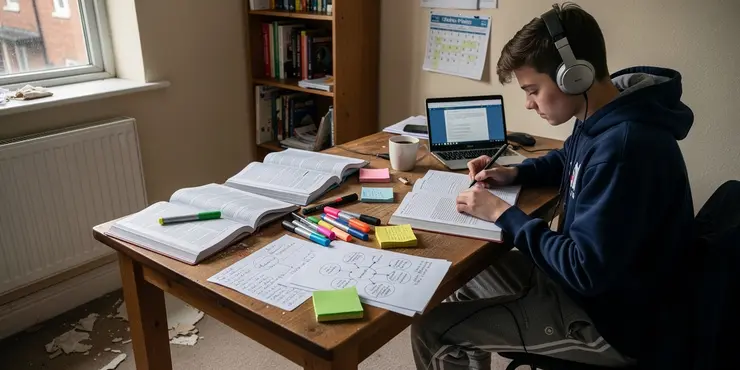
Find Help
More Items From Ergsy search
-
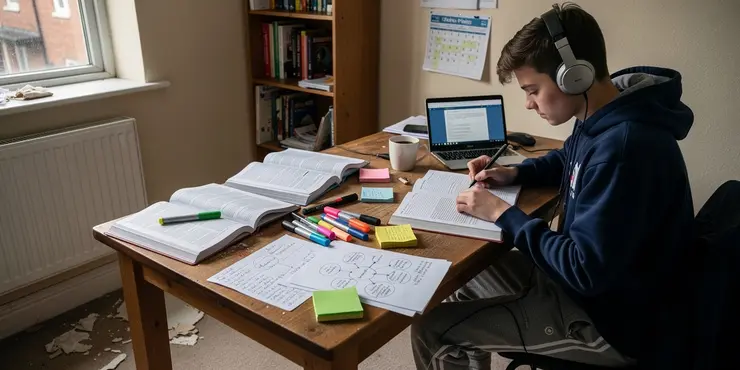
Can ADHD affect academic performance?
Relevance: 100%
-
How does binge drinking impact academic or work performance?
Relevance: 76%
-

Are there any risks associated with untreated ADHD?
Relevance: 73%
-

Attention deficit hyperactivity disorder (ADHD) - Living with ADHD
Relevance: 72%
-
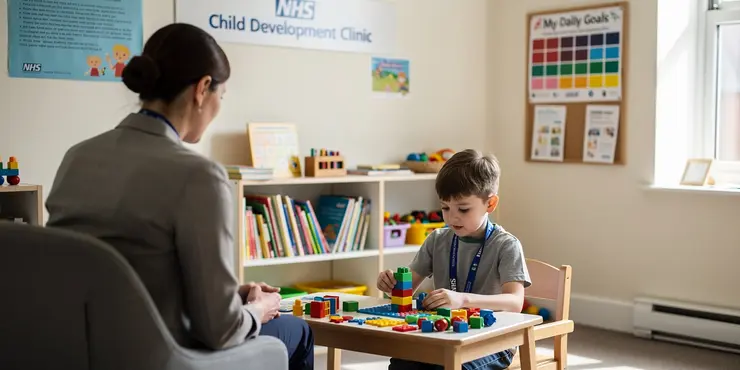
How is ADHD diagnosed?
Relevance: 68%
-

Is ADHD more common in boys or girls?
Relevance: 68%
-

How does ADHD affect executive function?
Relevance: 68%
-

What is ADHD?
Relevance: 67%
-

Is there a cure for ADHD?
Relevance: 65%
-

Are there different types of ADHD?
Relevance: 63%
-

What are the main symptoms of ADHD?
Relevance: 61%
-
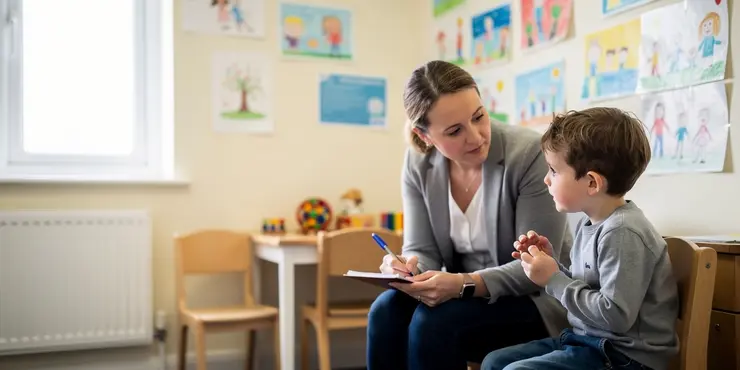
What role does the environment play in ADHD?
Relevance: 57%
-

Attention deficit hyperactivity disorder (ADHD) - Diagnosis
Relevance: 57%
-
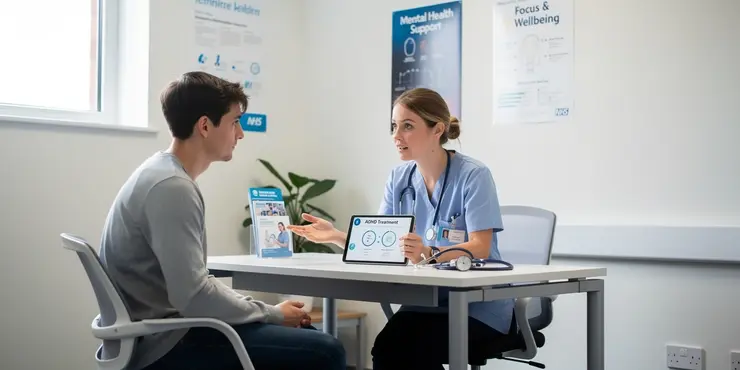
What are common treatments for ADHD?
Relevance: 57%
-
How can I get tested for ADHD?
Relevance: 55%
-

Can ADHD be inherited?
Relevance: 54%
-

What causes ADHD?
Relevance: 54%
-

Can diet affect ADHD symptoms?
Relevance: 52%
-
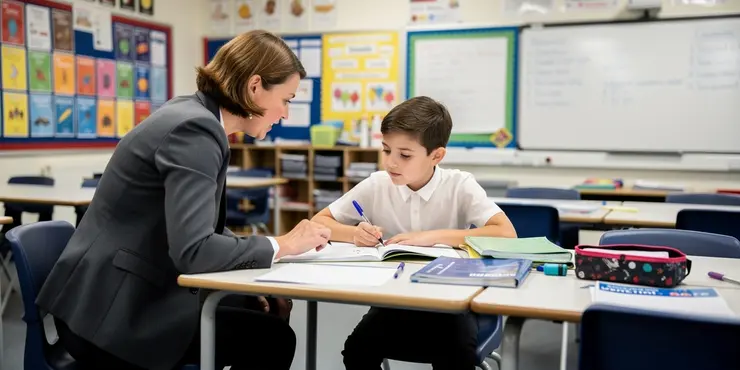
How can teachers support students with ADHD?
Relevance: 52%
-

Can adults have ADHD?
Relevance: 52%
-

Can lifestyle changes help manage ADHD?
Relevance: 51%
-

Attention deficit hyperactivity disorder (ADHD) - Treatment
Relevance: 51%
-

Can therapy help individuals with ADHD?
Relevance: 50%
-
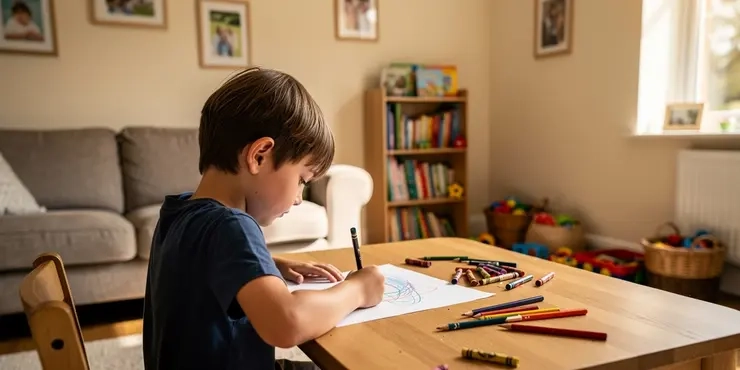
Attention deficit hyperactivity disorder (ADHD) - Introduction
Relevance: 49%
-

What is ADHD?
Relevance: 42%
-

Are there academic courses for aspiring primary care support workers?
Relevance: 41%
-

What is specific performance in property litigation?
Relevance: 34%
-

How is performance measured in Hyrox?
Relevance: 34%
-

How can I perform a testicular self-exam?
Relevance: 33%
-
Will mixed exercises improve my athletic performance?
Relevance: 32%
-

Performing a 12 lead ECG
Relevance: 32%
-

What specific performance issues led to these refunds?
Relevance: 31%
-

How is the womb lining test performed?
Relevance: 30%
-

Can the test be performed during my menstrual period?
Relevance: 30%
-

Who regulates the performance and compliance of UK water companies?
Relevance: 29%
-

Why is a womb lining test performed?
Relevance: 29%
-

Where can customers find updates on their water company's performance standards?
Relevance: 29%
-

How is a facelift performed?
Relevance: 29%
-

Which UK water companies are going to refund their customers for poor performance?
Relevance: 29%
-
Can I find operation waiting times in healthcare performance reports?
Relevance: 28%
Understanding ADHD and Academic Performance
Attention Deficit Hyperactivity Disorder (ADHD) is a neurodevelopmental disorder commonly diagnosed in children, but it can persist into adulthood. It is characterised by symptoms of inattention, hyperactivity, and impulsivity. These symptoms can vary widely among individuals, and this variability can affect different aspects of life, including academic performance.
Symptoms and Their Impact on Education
Inattention can lead to difficulties in maintaining focus during lessons, following instructions, and completing tasks. This can result in missed details, incomplete work, and a general struggle to keep up with the class curriculum. Hyperactivity might manifest as an inability to sit still, leading to disruptions during lessons and an inability to concentrate. Impulsivity can cause students to act without thinking, which may result in interrupting the teacher or classmates, leading to further disruptions and conflicts.
Academic Challenges Faced by Students with ADHD
Students with ADHD often face challenges in organisation, time management, and establishing effective study habits. These skills are crucial for academic success, yet students with ADHD can struggle due to their symptoms. The overlap of these challenges can lead to lower grades, a higher risk of dropping out, and generally less positive educational experiences.
Strategies to Support Students with ADHD
To aid students with ADHD, it is essential to adopt strategies that accommodate their needs and build on their strengths. Classroom accommodations might include extended time for tests, a quiet environment for work, or breaking down assignments into smaller, manageable tasks. Teachers can implement inventive teaching methods that incorporate movement and interactive learning to engage these students more effectively.
Furthermore, teaching organisational and time management skills can be beneficial. This might involve using planners or digital tools to help students keep track of assignments and deadlines. Collaboration between teachers, parents, and healthcare providers is crucial to develop a supportive network and personalised strategies that address each student’s unique challenges.
The Importance of Support and Understanding
Understanding ADHD and its impact is crucial not just for educators, but for peers and parents as well. Promoting an inclusive and supportive classroom environment can improve the academic and social experiences of students with ADHD. It is important to recognise the potential in students with ADHD and help them harness their creativity and unique perspectives.
Conclusion
ADHD can significantly affect academic performance, but with appropriate strategies and support, students with ADHD can succeed in their educational endeavours. By fostering an environment of understanding and leveraging individual strengths, it is possible to mitigate the academic challenges posed by ADHD.
Understanding ADHD and School Performance
ADHD stands for Attention Deficit Hyperactivity Disorder. It is a condition that starts when you are a child. But you can still have it as an adult. Kids with ADHD may have trouble paying attention, sitting still, or waiting for their turn. These things can make school hard for them.
Symptoms and How They Affect Learning
When kids with ADHD cannot pay attention, it means they might not focus well in class. They might miss what the teacher says, find it hard to finish tasks, or stay behind with schoolwork. If they are very active, they may struggle to sit still and might disturb the class. If they act without thinking, they might interrupt people. This can lead to problems in class.
School Problems for Kids with ADHD
Kids with ADHD often find it hard to get organised. They might also struggle to plan their time well and might not know how to study effectively. These difficulties can lead to lower grades and might make them want to leave school. They might not enjoy school as much as others do.
Ways to Help Kids with ADHD
To help kids with ADHD, it is important to understand what they need. Teachers can give extra time for tests or let them work in a quiet place. Breaking big tasks into smaller ones can also help. Fun activities that let kids move or try new things can make learning easier and more enjoyable for them.
Teaching kids how to organise their work and manage their time is also very helpful. They can use planners or apps to keep track of homework and deadlines. Everyone involved—teachers, parents, and doctors—should work together to help each child in the best way possible.
Why Support and Understanding Matter
It is important for teachers, friends, and parents to learn about ADHD. Making classrooms friendly and supportive can help kids with ADHD do better in school and make friends. We should see the good things in kids with ADHD, like their creativity and unique ideas.
Conclusion
ADHD can make school hard, but with the right help and strategies, kids with ADHD can do well. By understanding them and using their strengths, we can help them overcome school challenges.
Frequently Asked Questions
Useful Links
This website offers general information and is not a substitute for professional advice.
Always seek guidance from qualified professionals.
If you have any medical concerns or need urgent help, contact a healthcare professional or emergency services immediately.
Some of this content was generated with AI assistance. We’ve done our best to keep it accurate, helpful, and human-friendly.
- Ergsy carfully checks the information in the videos we provide here.
- Videos shown by Youtube after a video has completed, have NOT been reviewed by ERGSY.
- To view, click the arrow in centre of video.
- Most of the videos you find here will have subtitles and/or closed captions available.
- You may need to turn these on, and choose your preferred language.
- Go to the video you'd like to watch.
- If closed captions (CC) are available, settings will be visible on the bottom right of the video player.
- To turn on Captions, click settings .
- To turn off Captions, click settings again.
More Items From Ergsy search
-

Can ADHD affect academic performance?
Relevance: 100%
-
How does binge drinking impact academic or work performance?
Relevance: 76%
-

Are there any risks associated with untreated ADHD?
Relevance: 73%
-

Attention deficit hyperactivity disorder (ADHD) - Living with ADHD
Relevance: 72%
-

How is ADHD diagnosed?
Relevance: 68%
-

Is ADHD more common in boys or girls?
Relevance: 68%
-

How does ADHD affect executive function?
Relevance: 68%
-

What is ADHD?
Relevance: 67%
-

Is there a cure for ADHD?
Relevance: 65%
-

Are there different types of ADHD?
Relevance: 63%
-

What are the main symptoms of ADHD?
Relevance: 61%
-

What role does the environment play in ADHD?
Relevance: 57%
-

Attention deficit hyperactivity disorder (ADHD) - Diagnosis
Relevance: 57%
-

What are common treatments for ADHD?
Relevance: 57%
-
How can I get tested for ADHD?
Relevance: 55%
-

Can ADHD be inherited?
Relevance: 54%
-

What causes ADHD?
Relevance: 54%
-

Can diet affect ADHD symptoms?
Relevance: 52%
-

How can teachers support students with ADHD?
Relevance: 52%
-

Can adults have ADHD?
Relevance: 52%
-

Can lifestyle changes help manage ADHD?
Relevance: 51%
-

Attention deficit hyperactivity disorder (ADHD) - Treatment
Relevance: 51%
-

Can therapy help individuals with ADHD?
Relevance: 50%
-

Attention deficit hyperactivity disorder (ADHD) - Introduction
Relevance: 49%
-

What is ADHD?
Relevance: 42%
-

Are there academic courses for aspiring primary care support workers?
Relevance: 41%
-

What is specific performance in property litigation?
Relevance: 34%
-

How is performance measured in Hyrox?
Relevance: 34%
-

How can I perform a testicular self-exam?
Relevance: 33%
-
Will mixed exercises improve my athletic performance?
Relevance: 32%
-

Performing a 12 lead ECG
Relevance: 32%
-

What specific performance issues led to these refunds?
Relevance: 31%
-

How is the womb lining test performed?
Relevance: 30%
-

Can the test be performed during my menstrual period?
Relevance: 30%
-

Who regulates the performance and compliance of UK water companies?
Relevance: 29%
-

Why is a womb lining test performed?
Relevance: 29%
-

Where can customers find updates on their water company's performance standards?
Relevance: 29%
-

How is a facelift performed?
Relevance: 29%
-

Which UK water companies are going to refund their customers for poor performance?
Relevance: 29%
-
Can I find operation waiting times in healthcare performance reports?
Relevance: 28%


